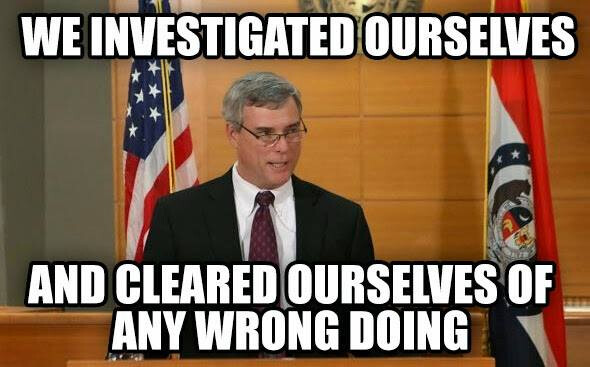Nailed it.
We need a version of this with Alito:

Just to reinforce Scott’s point, I looked up whether SCOTUS Justices are considered “employees” and my brief research indicates they are NOT considered employees.
Which means that by focusing only on temporary and permanent employees, without specifically including the Justices, that report Scott quotes means the investigation did NOT include the Justices.
That’s a gaping hole.
I hope the press jumps on this. (Not holding my breath.)
None of the people they investigated was the leaker.
They investigated everyone but the justices.
IT’S A MYSTERY.
I sincerely doubt that certain justices would tell the truth. At this point an oath means nothing to them.
I guess they couldn’t effectively investigate Justices anyway.
Investigator: Good morning Justice Thomas, we’re here to ask you some questions about—
Thomas: Fuck off.
Actually, the investigators could ask the Justices and then report publicly if the Justices said Fuck Off. There’s no Constitutional remedy for a Justice going FU but Justices are not immune to public embarrassment.
I hope that the various websites and press outlets hammer this issue. The court did not fully investigate this, it appears. It looks like a sham investigation with a gaping hole 9 Justices wide. What a joke.
They really, really are.
Public: Justice Thomas, you’re an embarrass—
Thomas: Fuck off. Have you even read my opinions?!
Why would they embarrass a potential source of juicy leaked info? The press never wanted to find the leaker - leakers are good business.
The opinion in question is proof enough that Alito himself is immune to embarrassment or shame.
Not that his previous output hadn’t already proved it.
Regardless of the above, if the investigators did not question the Justices, (which they don’t appear to have done) they didn’t do a proper investigation. It was a sham.
The Justices cooperated by…asking the investigator questions. I guess that is their skill set, after all.
Questions such as, “Are you seriously asking me that?”
Or: “Do you enjoy working here?”
The Supreme Court is almost certainly going to rule that employers can sue their workers for some economic damages from a strike. Since hurting the company economically is what makes a strike work, this is a huge blow against worker’s rights.
Why can’t companies sue former employees for quitting? Why can’t they sue underperforming employees for robbing them of their just and due labor value? I feel like there is an easy term available for this kind of employer-employee relationship…
In the specific case being heard by the SCOTUS though, it was not simply a case of workers demonstrating their utility and showing the harm caused by them not working.
In that specific case, if the plaintiffs are to be believed, the teamsters intentionally timed a strike in order to specifically cause damage to equipment.
I’m not sure that a narrow ruling on that would necessarily impact most strikes. I think that, for instance, there would be a difference between the normal loss of product that would occur from a kitchen striking (i.e. food would rot and not be saleable, because the workers aren’t doing their jobs), vs. what apparently happened in the case with the Teamsters, where they filled trucks with concrete, and then went on strike, knowing that the concrete would seize up and destroy the trucks.
…apparently no equipment was actually damaged, though. And there seem to be plenty of case precedents where workers struck at a time that threatened valuable products like milk and cheese, which were ruled in favor of unions. And existing law requires the company to get a favorable NLRB ruling before they can sue the union.
That’s what the company claims but the workers and the NLRB said they took reasonable steps to avoid any damage to the company. What the Supreme Court is deciding is whether the National Labor Relations Board is allowed to make these decisions, or whether they should always be decided by the courts. If it’s by the courts, that’s a significant threat to unions, as companies can always threaten groundless suits.
Right, they’re challenging the authority of the NLRB and the validity of the law that empowers it.